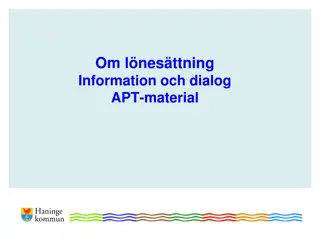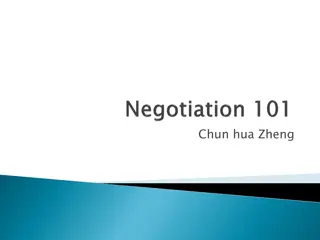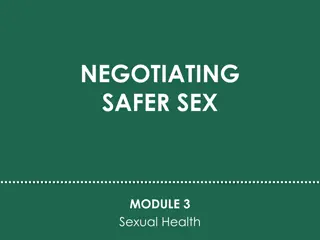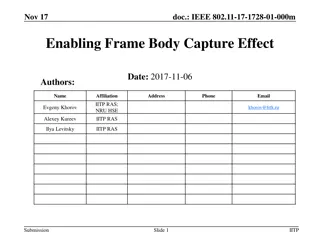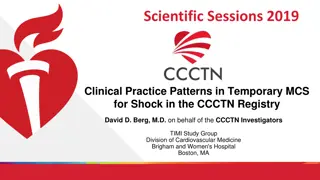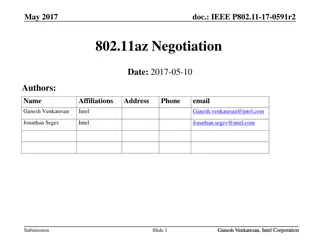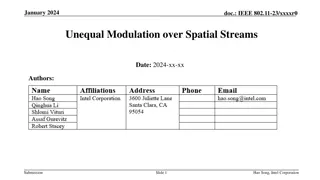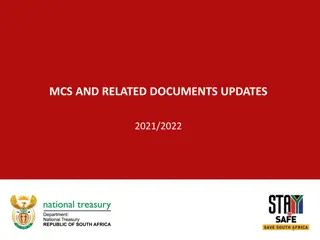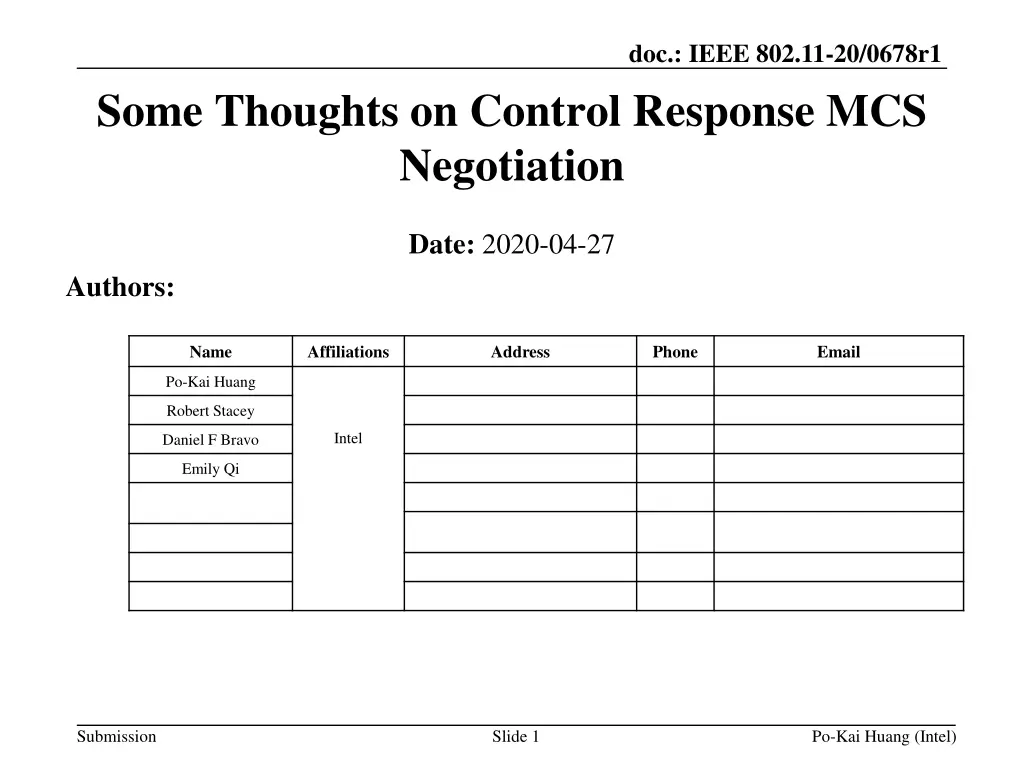
IEEE 802.11-20/0678r1: Control Response MCS Negotiation Thoughts
"Explore the discussion on Control Response Rate Selection in IEEE 802.11-20/0678r1 and recommendations for analyzing power imbalance solutions. Learn about negotiation requirements and proposed conclusions for MCS selection. Join the conversation on advancements in WiFi technology."
Download Presentation

Please find below an Image/Link to download the presentation.
The content on the website is provided AS IS for your information and personal use only. It may not be sold, licensed, or shared on other websites without obtaining consent from the author. If you encounter any issues during the download, it is possible that the publisher has removed the file from their server.
You are allowed to download the files provided on this website for personal or commercial use, subject to the condition that they are used lawfully. All files are the property of their respective owners.
The content on the website is provided AS IS for your information and personal use only. It may not be sold, licensed, or shared on other websites without obtaining consent from the author.
E N D
Presentation Transcript
doc.: IEEE 802.11-20/0678r1 Some Thoughts on Control Response MCS Negotiation Date: 2020-04-27 Authors: Name Affiliations Address Phone Email Po-Kai Huang Robert Stacey Intel Daniel F Bravo Emily Qi Submission Slide 1 Po-Kai Huang (Intel)
doc.: IEEE 802.11-20/0678r1 Discussion in TGmd vs. TGbe The discussion on Control Response Rate Selection (described in 11-19-1562) is an important discussion, and need a broad review/evaluation. We believe TGbe would be a venue to entertain the discussion because Consideration for the latest technology can be factor in Problem can be analyzed as a whole Avoid to have pre-be solution and be solution Submission Slide 2 Po-Kai Huang (Intel)
doc.: IEEE 802.11-20/0678r1 Recommend for Analysis The proposal vaguely talks about solving power imbalance and assumes that The recipient can figure out the power imbalance between the originator and the recipient The recipient can then figure out the MCS difference across the board needed to accommodate that power imbalance The above question is considered implementation specific and ignored in the proposal In reality, MCS decoding curve is different for each device and depends on Channel Model Size of the frames Impairments We expect that a STA has to guess and keep changing the negotiated value similar to a link adaptation procedure (try MCS difference 1, try MCS difference 2, and so on) Analysis maybe useful to understand if this additional procedure on top of existing link adaptation procedure is helpful and improves the performance Submission Slide 3 Po-Kai Huang (Intel)
doc.: IEEE 802.11-20/0678r1 Requirement of Negotiation The current spec assumes that the originator can reject the request for whatever reason However, the previous slide highlights that a STA may need adaptation algorithm to figure out the difference If a originator can reject for whatever reason, then there is no way for the STA to do adaptation algorithm We think the negotiation procedure may need to be simplified if we want the proposal to be useful Submission Slide 4 Po-Kai Huang (Intel)
doc.: IEEE 802.11-20/0678r1 Conclusion We recommend the overhaul of control response MCS selection to be discussed in 11be To consider the major change introduced by 11ax and 11be and avoid having different solutions going forward We recommend to have more analysis to describe the gain saving for non-S1G STA Useful to convince people to use it after this is introduced to the spec We recommend to reconsider the need of negotiation, and the negotiation procedure may need to be revised to make the protocol useful. Submission Slide 5 Po-Kai Huang (Intel)


